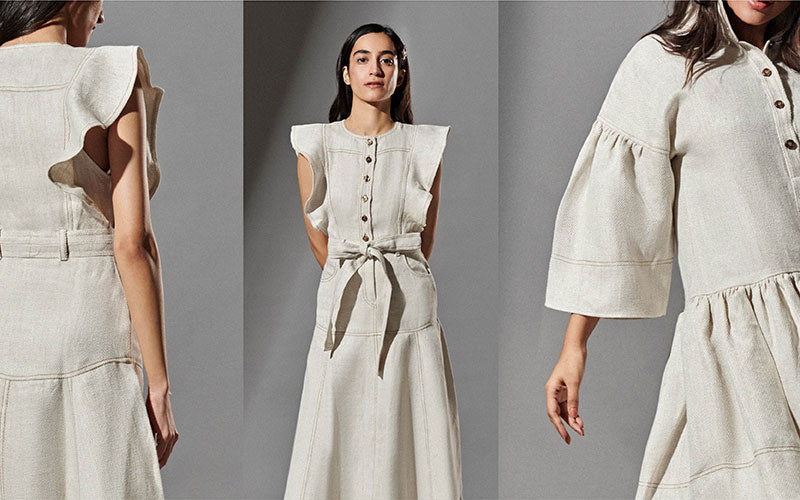
Here’s All You Need To Do To Make The Shift To Eco-Friendly Fashion For A Better World
The fashion industry is responsible for 10% of the world’s annual carbon emissions. This is 5 times that of flying. It’s also one of the most polluting, waste-generating and water-consuming industries.
Since we are becoming aware of the environmental damage that is caused by the fashion industry, we need to take some action to become eco-friendly and sustainable at every step. Take a look at the 10 points we have curated that will help you to shift to eco-friendly fashion for a better world -
1 Know the materials -
Understanding the impact of certain materials is crucial when making more sustainable choices. A good rule of thumb is to avoid synthetic materials such as polyesters. These are derived from fossil fuels and take years to break down. We also need to understand that not all the natural materials are good. For example, organic cotton uses significantly less water than conventional cotton and it does not require harmful pesticides in the process of its production.
2 Support brands who have a positive impact -
Eco-minded brands have started considering how fashion can have a positive impact on the environment rather than just reducing its impact. Regenerative agriculture practices such as no-tilling, growing cover crops and many more such practices are a growing trend within fashion that aims to restore soil health and biodiversity.
3 Watch out for harmful chemicals -
A lot of hidden chemicals are used to treat clothes. These chemicals help the fabric remain wrinkle-free or water-resistant. They are a serious concern as they pollute local waterways and pose a risk to the factory workers. Avoid brands that use any such kind of chemicals to treat the garments.
4 Invest in eco-friendly fashion brands -
Buying better also means supporting designers who promote sustainable practices. It may be a little task for you to research for the brands who are concerned about the environment in the way of moving forward, you may also have to spend a bit more than usual, but this little step will have a major impact on the environment and to us directly.
5 30 wear mantra -
It may sound cliche, but this mantra is an important step towards sustainability. Ask yourself whether the garment you are purchasing will be worn by you at least 30 times? If NO, avoid purchasing the statement piece that you know you will wear only once. Instead, invest in basics that you could mix and match and wear multiple times.
6 Try renting -
Everyone is tempted to buy brand new outfits for a close friend’s wedding or a vacation. But you also need to realise that these clothes lie in the wardrobe for years without being used again. But this problem is solved, thanks to the new trend of renting clothes. You can now wear designer clothes but without going bankrupt by just renting them.
7 Reduce water footprint -
The production of textile uses about 93 billion cubic metres of water annually. We should all be concerned about this practise. As mentioned previously, organic cotton uses significantly less water than conventional cotton. Fabrics like organic cotton, that require less water from the stage of production to the stage of manufacturing garments, should be used widely.
8 Be conscious about vegan fashion -
Animal-derived raw materials such as leather and wool come with environmental and ethical concerns. Vegan alternatives can also be harmful to our planet as they often contain synthetics. There are a lot of alternative materials like linen, beech tree fibre that are entering the market which are interesting innovations that are actually eco-friendly.
9 Take care of your clothes -
Extending the life of your clothes is crucial when it comes to lowering the environmental footprint of your garments and ensuring they don’t end up clogging landfill sites after a few uses. Ensure that your clothes last as long as possible. You can do this by not overwashing them. This practise will also lower your CO2 emissions and water consumption.
10 Ensure your clothes have a second life -
Re-selling your clothes is the best way to ensure they’ll have a second life. Donating to charities and organisations that are looking for used clothes will also help. For worn-out pieces that can no longer be repaired or reused, look for recycling schemes instead of dumping them in the junkyards.
Taking care of the environment in the way of moving forward is the need of the hour. TheRealB is a brand that provides luxury clothing but is conscious to not harm the environment. Our collection, Luxe Loungewear, has outfits made from milk, orange peel, organic cotton, recycled cotton, khadi and hemp. It is made with the aim to provide conscious and tailored fashion that also offers comfort.
Check out our website to have a look at our various collections.


